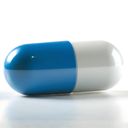How to Find the Cheapest Allergy Medicine
June 8, 2020During certain months of the year, you may find yourself sniffling and sneezing more than usual. You don’t have to struggle through allergy season without an affordable treatment plan on hand.

The Inside Rx Blog
Get the Inside Scoop on tips & tricks that may help your family save on prescriptions!
Subscribe to stay up to date with the latest news and tips
For some people, controlling their allergy symptoms is as simple as cleaning frequently and using an air filter. However, for most people, allergy symptoms call for the use of an over-the-counter (OTC) allergy medicine. In fact, the number of people who use OTC drugs for allergies has increased from 66% in 2009 to 75% in 2015. This number is expected to be much higher as we enter a new decade.
Types of Allergy Medicine
Antihistamines
When you come in contact with an allergen like dust mites, pollen or pet dander, your body reacts by releasing histamine. Histamine is a natural substance that helps launch an immune-system response to allergens and causes the allergy symptoms you’re well aware of. Antihistamine medications can help block the effects of histamine and reduce symptoms like runny nose, sneezing, and itching.
Examples of antihistamines include Claritin (loratadine), Zyrtec (cetirizine) and Allegra (fexofenadine). Side effects of antihistamines may include drowsiness, dizziness, excitability, and dry mouth.
Nasal steroids
Also known as intranasal corticosteroids, nasal steroids help control the inflammatory response your body produces to fight allergies. These medications can decrease swelling in the nasal passages to further decrease symptoms like runny nose and sneezing. Nasal steroids help make breathing easier, especially when they’re used consistently during allergy season.
Examples of nasal steroids include Flonase (fluticasone), Nasonex (mometasone) and Qnasl (beclomethasone). Side effects may include dry nasal passages, throat irritation, nosebleeds and headaches.
Decongestants
Allergies can cause the nasal lining to swell which can result in congestion, or a “stuffed up” feeling. Decongestants work by shrinking the blood vessels in the nasal passages to relieve congestion. If you go to the pharmacy, you’ll find that antihistamines are often combined with a decongestant to help relieve most allergy symptoms. This is why you might see the letter “D” after a product name, such as Claritin-D or Zyrtec-D, which contain pseudoephedrine.
Examples of decongestants include Afrin (oxymetazoline), Sudafed PE (phenylephrine) and [Sudafed (pseudoephedrine). Side effects may include headache, anxiety, insomnia and loss of appetite.

Vyvanse Coupon Guide 2025: How to Cut Your Prescription Costs

Lost Your Job? Here's How to Get Prescriptions Without Insurance Today

How to Explain Your Additional Employee Benefits (Like Inside Rx)

Emergency Medication Kit Basics: Prepare Before Disaster Strikes
Finding the Cheapest Allergy Medicine
An allergy medicine, such as an antihistamine or nasal steroid, is your best bet for reducing sneezing, runny nose and other symptoms. Because many allergy medications are available without a prescription, you don’t have to spend a fortune on them. Still, there are ways to save on prescription allergy medications to further reduce costs.
Generic Alternatives
According to a report from the Consumer Healthcare Products Association (CHPA), U.S. households spend approximately $442 each year on average for OTC medications. The easiest way to lower this cost is to opt for generic alternatives instead of brand names. For instance, you can purchase loratadine tablets instead of brand-name Claritin tablets. Generic drugs contain the same active ingredient and work the same as their brand-name counterpart.
Discount Savings Cards
For prescription allergy drugs, you can use a discount savings card, like the one from Inside Rx. To see if you can save, type in the name of your medication and your zip code. The pricing tool will show you discounts near you on the medication you need. After you find the lowest price, you can instantly download, print, email or text a savings card for you to take with you to the pharmacy.
Losartan Potassium
$ 7.84Atenolol
$ 7.66Savings are quick and easy with Inside Rx.
Allergy season can be tough, especially with high-priced allergy medication. Inside Rx is here to help! See if you can save on your allergy medicine with Inside Rx.